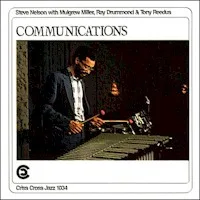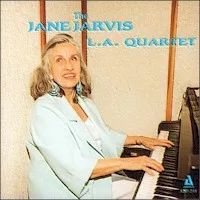Time: 75:49
Size: 173.6 MB
Styles: Guitar jazz
Year: 2010
Art: Front
[3:15] 1. Pennies From Heaven
[2:59] 2. Yesterdays
[3:35] 3. Body And Soul
[3:36] 4. All The Things You Are
[2:49] 5. The Continental
[2:22] 6. There Will Never Be Another You
[4:26] 7. There Will Never Be Another You
[4:29] 8. Stella By Starlight
[4:30] 9. Once In A While
[2:38] 10. Easy To Love
[4:15] 11. The Real Cat
[2:32] 12. How About You
[6:53] 13. You Go To My Head
[4:28] 14. Tres Chouette
[4:03] 15. Someone To Watch Over Me
[3:17] 16. Someone To Watch Over Me
[3:34] 17. Lover Man
[3:13] 18. Get Happy
[4:45] 19. Too Marvelous For Words
[4:00] 20. Goodnight, Wherever You Are
One of the finest European jazz guitarists to emerge during the 1950s, René Thomas appeared on many sessions with Americans during the next few decades. Influenced as one might expect by Django Reinhardt, Thomas was mostly self-taught and by the 1950s he was a greatly in-demand cool-toned guitarist, playing in a style similar to Jimmy Raney's. In addition to performing with the top European jazz musicians, Thomas worked with Chet Baker (1955), lived in Montreal during 1958-1963, played with Toshiko Akiyoshi and Sonny Rollins, was back in Europe by 1963, and during the next few years worked with Kenny Clarke, Lou Bennett, and Han Bennink among many others. During the 1969-1972 period, Thomas was a member of Stan Getz's European Band (with whom he recorded Dynasty). He died of a sudden heart attack in Spain when he was 47. As a leader, Thomas recorded for Vogue (1954), Barclay, Polydor, Jazzland (1960), RCA, Royal Jazz, and the Italian Vogel label (1974).
Jimmy Raney was different from the other jazz guitarists who came up during the bebop revolution in New York in the 1940s and ’50s. He was a complete composer as well as a talented player, and he was a quiet man looking to play an explosive style of music. Raney kept his amp turned down and found his own way of playing jazz. Jim Hall described Raney’s playing as a cross between Charlie Parker and Béla Bartók. Raney didn’t play the staccato riffs and lightning-fast bursts of notes that many bop players favored. Raney played long, legato melodic lines that seemed to ignore measures, took surprising twists and turns and often resolved in unexpected places.
Raney was born in Louisville, Ky. His father was a journalist and his mother played a little guitar and she showed young Jimmy a few chords. He later took classical lessons, and Raney landed his first professional job when he was 13. Raney managed to work quite a bit in Louisville during WWII because the draft took most of the older players, but he was playing mostly hillbilly and pop tunes. Then a teacher introduced Raney to Charlie Christian; Raney said he almost fainted. That same teacher recommended Raney to bandleader Jerry Wald and the young guitarist was off to New York. Wald’s pianist, Al Haig, took Raney to Harlem and introduced him to Parker, Dizzy Gillespie and Art Tatum. After returning to Louisville for a bit, Raney eventually landed in Woody Herman’s Second Herd. He left within a year because he hated the relentless touring schedule and he didn’t get much of a chance to solo. But he did meet saxophonist Stan Getz in the band and that relationship would put Raney in the spotlight.
Jimmy Raney was different from the other jazz guitarists who came up during the bebop revolution in New York in the 1940s and ’50s. He was a complete composer as well as a talented player, and he was a quiet man looking to play an explosive style of music. Raney kept his amp turned down and found his own way of playing jazz. Jim Hall described Raney’s playing as a cross between Charlie Parker and Béla Bartók. Raney didn’t play the staccato riffs and lightning-fast bursts of notes that many bop players favored. Raney played long, legato melodic lines that seemed to ignore measures, took surprising twists and turns and often resolved in unexpected places.
Raney was born in Louisville, Ky. His father was a journalist and his mother played a little guitar and she showed young Jimmy a few chords. He later took classical lessons, and Raney landed his first professional job when he was 13. Raney managed to work quite a bit in Louisville during WWII because the draft took most of the older players, but he was playing mostly hillbilly and pop tunes. Then a teacher introduced Raney to Charlie Christian; Raney said he almost fainted. That same teacher recommended Raney to bandleader Jerry Wald and the young guitarist was off to New York. Wald’s pianist, Al Haig, took Raney to Harlem and introduced him to Parker, Dizzy Gillespie and Art Tatum. After returning to Louisville for a bit, Raney eventually landed in Woody Herman’s Second Herd. He left within a year because he hated the relentless touring schedule and he didn’t get much of a chance to solo. But he did meet saxophonist Stan Getz in the band and that relationship would put Raney in the spotlight.
2 Guitars In Paris








